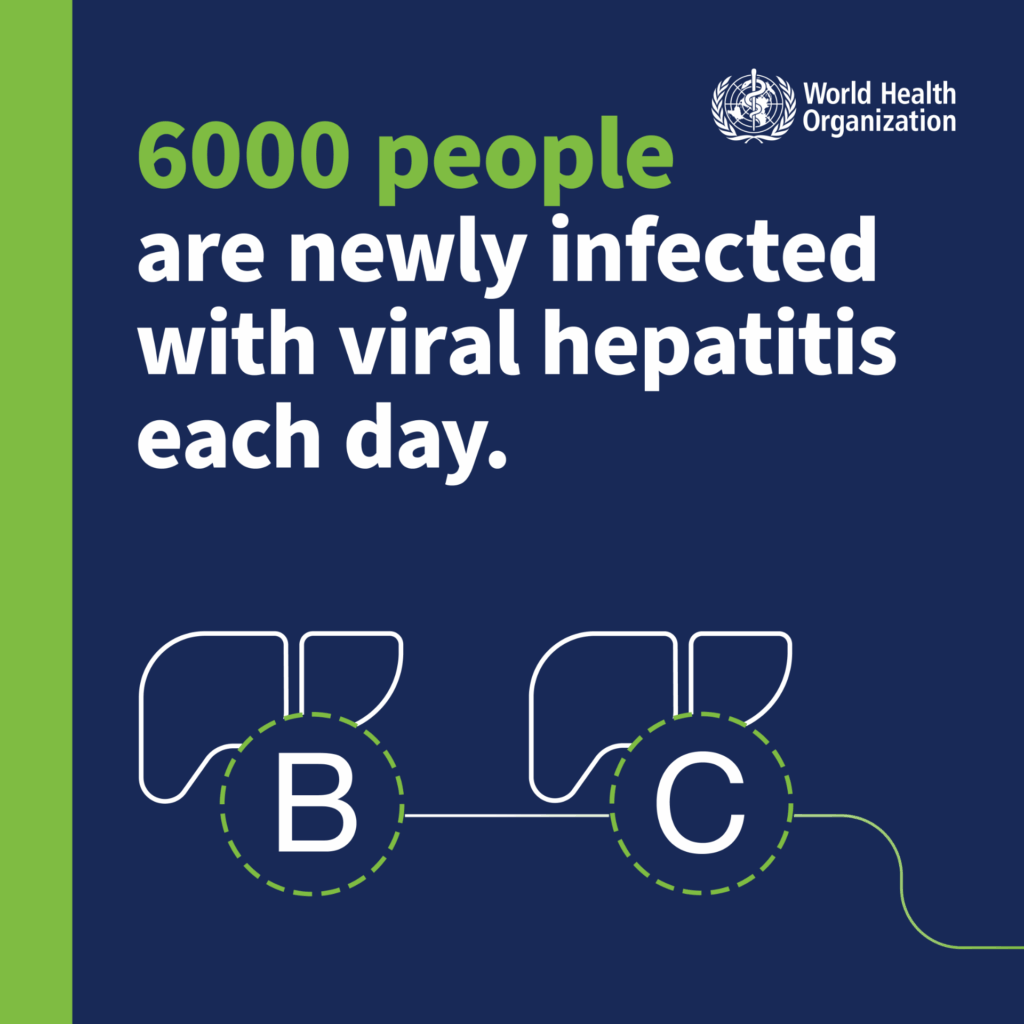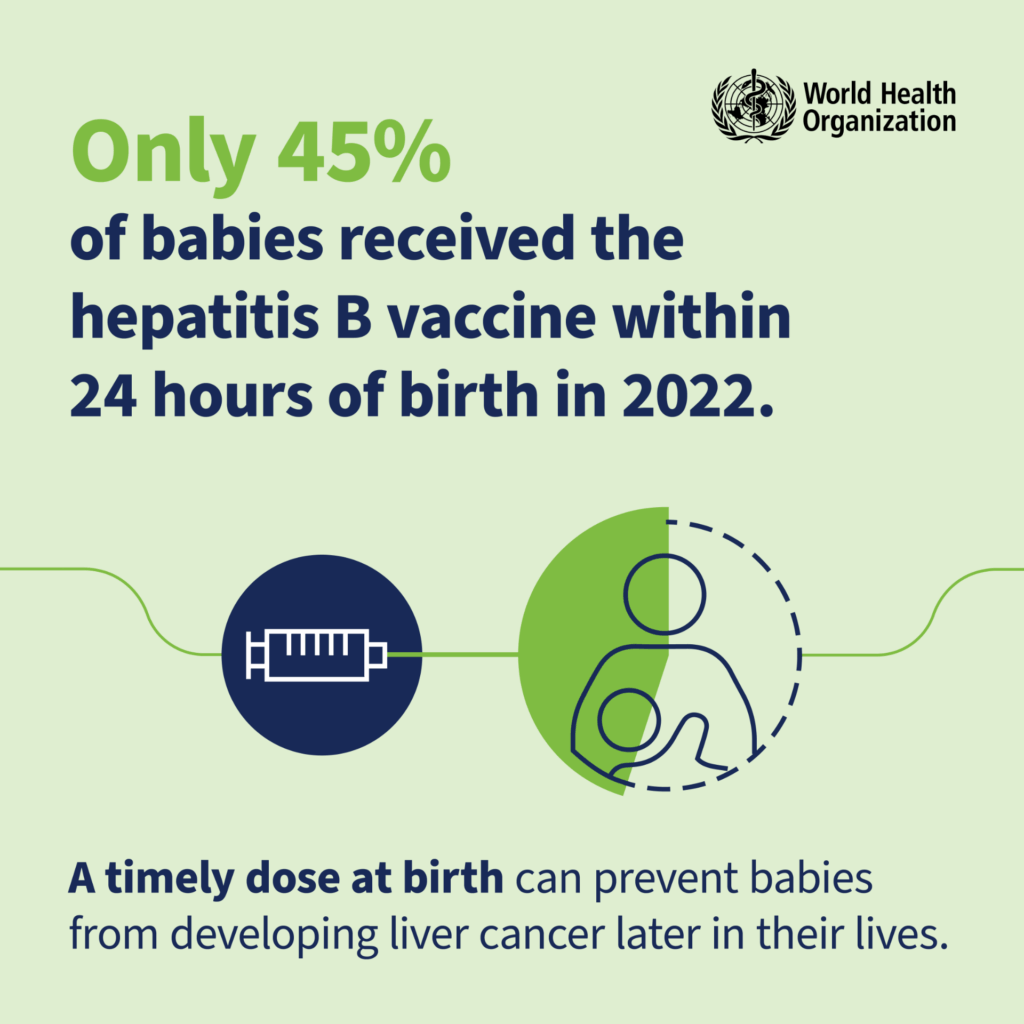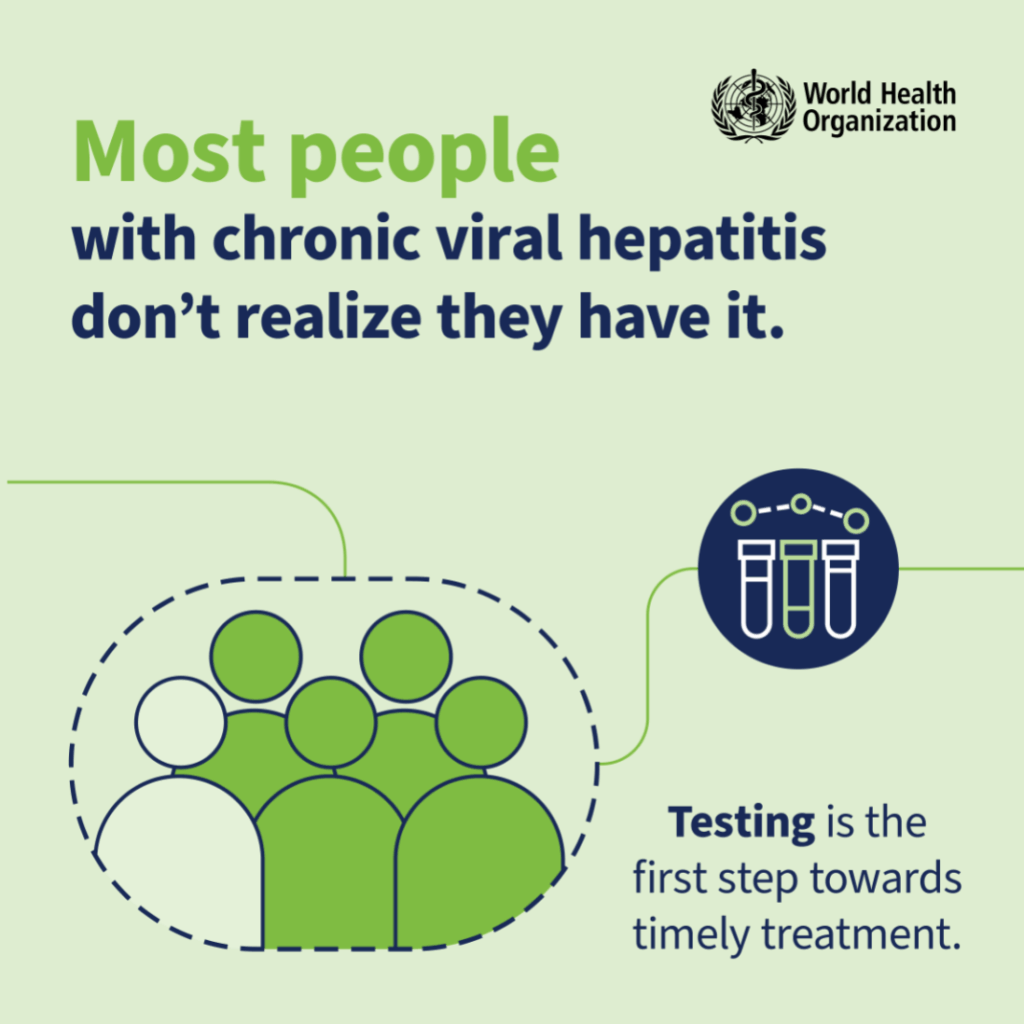
Most people don’t realise that chronic hepatitis B and C are the leading causes of liver cancer worldwide. Hepatitis D – a lesser-known but dangerous co-infection – has recently been classified by the International Agency for Research on Cancer (IARC) as carcinogenic to humans, just like hepatitis B and C. Hepatitis D, which only affects individuals infected with the hepatitis B, is associated with a two- to six-fold higher risk of liver cancer compared to hepatitis B alone.
“Every 30 seconds, someone dies from a hepatitis-related severe liver disease or liver cancer. Yet we have the tools to stop hepatitis,” said Dr Tedros Adhanom Ghebreyesus, WHO Director-General.
In Africa, the burden is especially high. According to the WHO:
- Over 90 million people in sub-Saharan Africa are living with chronic hepatitis B or C.
- Liver cancer is one of the top five cancer killers across the continent.
- Hepatitis-related liver cancer often goes undetected until it’s too late, leading to very poor survival outcomes.
This is a ticking time bomb — but it’s not unstoppable.
Know Your Status. Change the Future.
Here’s the challenge: most people living with hepatitis don’t know they’re infected. With symptoms often silent for years, early detection becomes our first line of defence — especially in high-burden regions like ours.
At AMCE, we believe early diagnosis is life-saving. Our advanced diagnostics and imaging tools allow us to detect liver damage and viral activity early, giving people the chance to treat hepatitis before it becomes cancer.
But the real game-changer is prevention.

5 Key Ways to Prevent Liver Cancer
- Get tested. Everyone should know their hepatitis B and C status — particularly adults over 30 and anyone with a history of blood transfusions or unsafe injections.
- Vaccinate early. The hepatitis B vaccine is safe, effective, and should be given at birth — within the first 24 hours. This single act can break the cycle of transmission.
- Use safe injection and blood practices. Ensure medical care, dental procedures, and cosmetic treatments (like tattoos or piercings) are performed with sterile equipment.
- Avoid sharing needles or personal care items that may carry infected blood.
- Ask your healthcare provider about treatment options if you’re living with hepatitis. Cure is possible – especially for hepatitis C.
Our Role at AMCE: Prevention First, Always
At the African Medical Centre of Excellence (AMCE), we are proud of our oncology leadership. But beyond treatment, we are committed to early detection, education, and public health advocacy. With stronger awareness and smarter diagnostics, we can reduce preventable cancer deaths. As the world commemorates World Hepatitis Day, we’re not just talking about care — we’re talking about cure, control, and community-led change.
What Needs to Happen Now
Hepatitis elimination is not a fantasy. We have the tools. We need the will.
If we act now, we can prevent 2.1 million liver cancer cases and 2.8 million deaths by 2030.
For individuals:
- Get tested for hepatitis B and C — and encourage your loved ones to do the same.
- Demand the birth dose vaccine for every newborn within 24 hours.
- Share verified information to combat stigma and misinformation.
For policymakers:
- Invest in campaigns that connect hepatitis prevention to liver cancer reduction.
- Scale up access to vaccines, diagnostics, and curative therapies.
- Integrate hepatitis services into primary care and national cancer control plans.
Hepatitis is Treatable. Liver Cancer is Often Not.
Let that sink in.
Early action can mean the difference between life and death — between a future free from liver cancer or one burdened by it.
Make the link, take the test, and break the chain. Because eliminating hepatitis isn’t just a health target, it’s a cancer prevention strategy.

